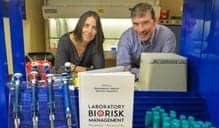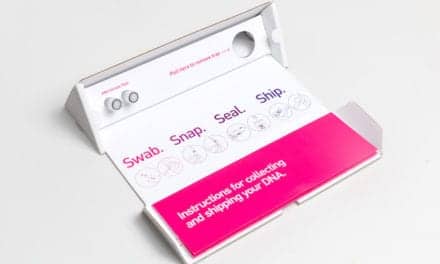The College of American Pathologists (CAP), the International Association for the Study of Lung Cancer (IASLC), and the Association for Molecular Pathology (AMP) have announced the open comment period for the revised evidence-based guideline, “Molecular Testing Guideline for Selection of Lung Cancer Patients for EGFR and ALK Tyrosine Kinase Inhibitors.”
The open comment period will close on August 2, 2016. The online format provides an opportunity for public review of new draft recommendations for several key topics, as well as recommendation statements that have been reaffirmed since the initial guideline was jointly published online in April 2013 by the Archives of Pathology & Laboratory Medicine, the Journal of Thoracic Oncology, and the Journal of Molecular Diagnostics.
“In an era of precision medicine, our collective ability to not only understand but leverage the latest breakthroughs in lung cancer research will enable us to provide more-precise, targeted treatment options,” says Philip T. Cagle, MD, FCAP, medical director of pulmonary pathology in the department of pathology and genomic medicine at Houston Methodist Hospital, and editor in chief of Archives of Pathology & Laboratory Medicine. “The revised guideline provides a clear framework based on evidence from recently published clinical literature.”
The guideline revisions are designed to provide state-of-the-art molecular testing of lung cancer recommendations for pathologists, oncologists, and other cancer and molecular diagnostic laboratory professionals. The revisions are based on evidence from an unbiased review of published experimental literature since 2013, and include recommendations from an expert panel of renowned worldwide leaders in the field. The final recommendations will be approved and jointly published after consideration of the public comments, further panel discussion, and a complete evidence analysis. For more information and to provide comments, visit www.amp.org/LBGOCP.
“The revised guideline reinforces the importance of molecular testing, establishes molecular testing standards, and helps guide targeted therapies for lung cancer,” says Yasushi Yatabe, MD, PhD, chief of the department of pathology and molecular diagnostics at Aichi Cancer Center, Nagoya, Japan. “We strongly encourage our peers to provide feedback to ensure our draft recommendations are sound, practical, and implementable, so we can all support best clinical practices and provide optimal care to our patients.”
“The final manuscript will serve as both an update and extension of the 2013 practice guideline that established evidence-based identification and best practices for molecular biomarker testing for patients diagnosed with non-squamous, non-small cell lung cancer of all stages,” says Neal I. Lindeman, MD, director of the molecular diagnostics laboratory at Brigham and Women’s Hospital, and associate professor of pathology at Harvard Medical School. “This guideline will continue to be updated as appropriate, and guidelines for other biomarkers associated with lung cancer will be added as more research becomes available.”
Together with a multidisciplinary expert panel, cochairs Cagle, Yatabe, and Lindeman formulated new draft recommendations addressing these key questions:
- What other genes, previously not addressed, should be tested in lung adenocarcinoma?
- Is immunohistochemistry reliable for screening for ALK translocations?
- What are the types and rates of secondary resistance in patients who are undergoing treatment with targeted tyrosine kinase inhibitors?
- What are the clinical performance characteristics of circulating DNA/CTC in plasma when used for diagnosis of primary lung adenocarcinoma or relapse?
- Are there biomarkers that are predictive of clinical outcome in squamous and small-cell lung carcinomas?
- What key considerations are there regarding next-generation sequencing panels targeting key genes or regions of interest?
In conjunction with revising the guideline, CAP, IASLC, and AMP will develop clinical tools and resources for pathologists and oncologists that summarize the findings and recommendations. For further understanding, the organizations expect to develop a patient guide, including questions for patients to ask their physicians.
For further information, visit the organizations’ Web sites at www.cap.org, www.iaslc.org, and www.amp.org.







